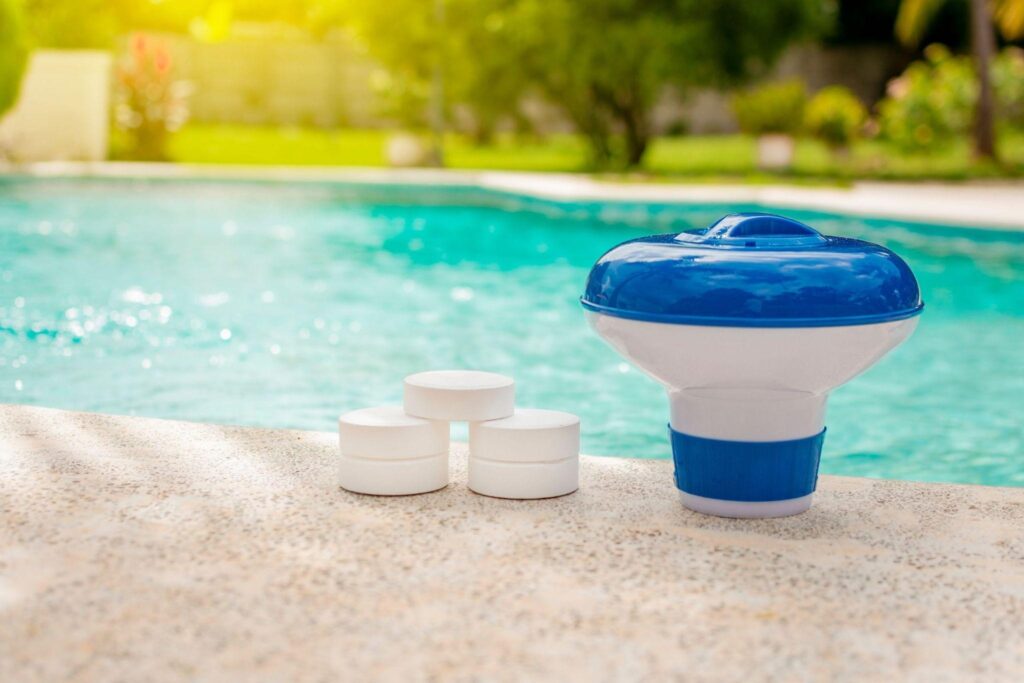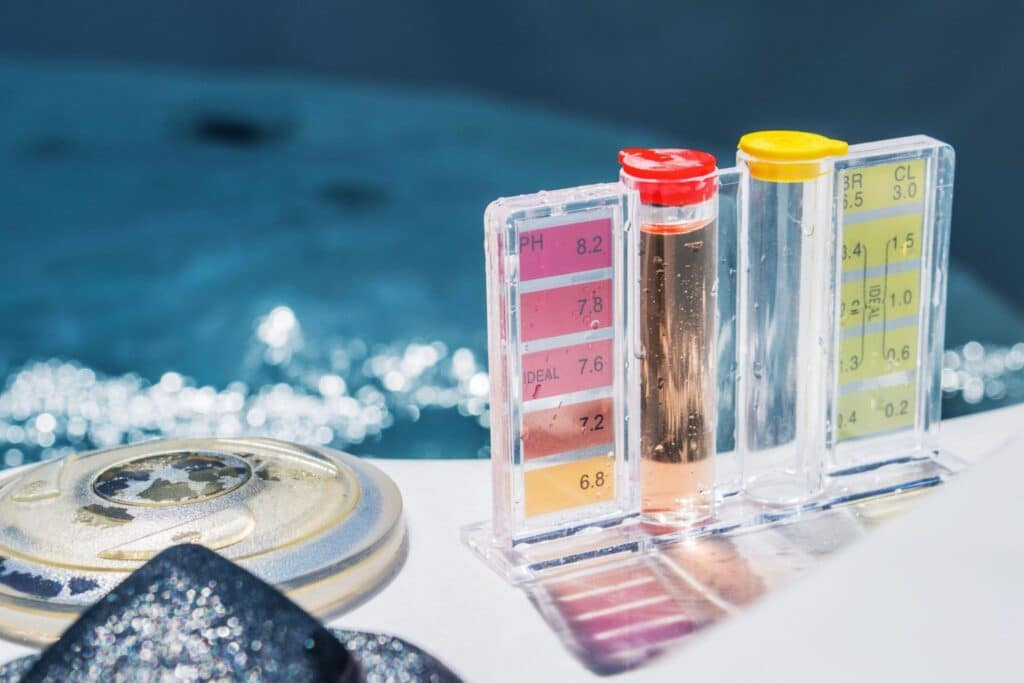
Keeping your pool water crystal clear takes slightly more nuance than tossing in some chlorine and calling it a day. There’s a difference between daily sanitizing and the occasional deep clean, and knowing when to use each can save you from cloudy water and recurring let-downs. If you want a low-maintenance pool cleaning experience in Florida, getting the balance right is key.
What is a Pool Sanitizer?

A pool sanitizer is your first line of defense against bacteria, algae, and other unwanted contaminants. It’s the consistent, everyday treatment that keeps your water clean, clear, and safe for swimming. Without it, your pool would quickly turn into an unsanitary mess, no matter how often you skim the surface.
The most common sanitizers include:
- Chlorine: The go-to option for most pool owners, available in liquid, tablet, or granular form. It’s effective, affordable, and widely used.
- Bromine: A top-tier chlorine alternative, especially for hot tubs and indoor pools. It’s gentler on skin and eyes and works better in warm water, but it does come at a higher price.
- Saltwater Systems: These generate chlorine naturally through electrolysis, providing a softer, more luxurious water feel with less of that strong chlorine smell.
Sanitizers work around the clock, keeping bacteria and algae from taking over. While they don’t provide an instant fix for heavy contamination, they ensure your pool stays in pristine condition with regular maintenance.
What is a Pool Shock?
A pool shock is like a turbo boost for your pool’s sanitizer, giving it a powerful punch when your water needs some serious attention. It’s a high-dose oxidizer designed to break down bacteria, algae, and even those chlorine-resistant contaminants, and restore the efficiency of your pool’s sanitizer. Shocking is often done to achieve breakpoint coronation where the chlorine in the water is 10 times the usual level. It’s not something you use every day, but when you need to bring out the big guns, a shock treatment will have your pool sanitized in no time.
Here are the common types of pool shock:
- Calcium Hypochlorite (Cal-Hypo): This strong, reliable shock is your go-to for quickly killing off contaminants. However, it needs to be pre-dissolved in water before adding it to your pool, so a little prep work is required.
- Sodium Dichlor: Stabilized and easy to use, making it a great option for regular shock treatments without a lot of hassle.
- Non-Chlorine Shock (Potassium Monopersulfate): This treatment is gentler on the pool while still getting rid of contaminants, and it won’t raise your chlorine levels. If you shock often, this
You’ll want to use shock when your pool’s water looks cloudy, after heavy use, or after a storm. It’s also perfect for tackling algae or when you’ve been maintaining a saltwater system. Just remember that shock treatments aren’t a replacement for regular sanitizing—they’re your secret weapon when things get out of hand.
Best Practices for Sanitizing and Shocking
When maintaining a pool, you should aim for a balance between sanitizing and shocking. You want to make sure you’re using enough chemicals to keep things safe without overdoing it and throwing everything out of whack.
Sanitizing should be a regular, ongoing thing, keeping your pool safe from bacteria and algae. But when it comes to shock, timing is key. For average pool usage, you’ll want to shock your pool about once a week or after heavy use, like parties or a swim meet. The weather, as we mentioned, also plays a role—if you’ve had a lot of rain or high temperatures, you might need to shock more frequently.
Be aware that after shocking, you’ll normally need to wait 12 to 24 hours after shocking before swimming in the pool. Chloramines are what smell bad and bother your eyes and skin—always test your pool and wait until levels are back to normal before using it again..
Don’t go overboard, though, as too much shock can upend your pool’s chemistry, turning it into a chemical soup. Under-shocking, on the other hand, gives contaminants a chance to sneak in. Find the sweet spot with regular testing and a smart maintenance schedule, and your pool will stay pristine all season long.
Professional Pool Maintenance from Blue Science
Keeping your pool in top shape requires a thoughtful balance between sanitizing and shocking. If you’re ever unsure or need expert care, Blue Science Pools is here to provide Florida pool owners with custom cleaning and maintenance services that keep your pool sparkling all year long. Reach out to our team today and get your pool care back on track!
